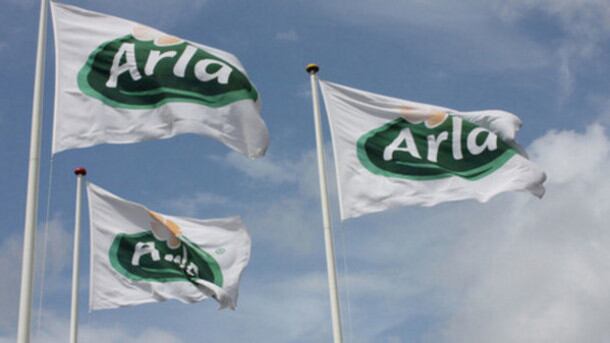Payment was expected to be between the ranges of €285m–€310m (£255m–£278m), with a final decision to be made in February 2019 when the annual results are approved. It would follow the regular timing of the supplementary payment in Arla, with money being paid out in March 2019.
Chairman Jan Toft Nørgaard said: “As a farmer-owned dairy company, we care deeply about the livelihood of our farmers and we recognize that this summer’s drought in Europe has been extraordinary.
“We are proposing that extraordinary measures be taken in this situation, and the board is satisfied with the positive development of the company's balance sheet, which makes this proposal possible.”
Exception to policy
Arla said the payment would be an exception to its regular profit appropriation policy, whereby any additional profit over net is paid out throughout the year via milk price to its farmers. The dairy cooperative will return to this policy for 2019 going forward.
Chief executive Peder Tuborgh added: “Our balance sheet has improved significantly over the last few years and the strength of our balance sheet makes room for this extraordinary initiative while still maintaining our investment plans for the continued future growth of the company.
“If the board's proposal is approved, our financial ratios are expected to remain within the target range – provided there is a firm commitment by the board of representatives to return to the agreed retainment policy after 2018.”
Heat wave
The extreme weather across Europe, which saw the UK experience the longest heat wave in living memory, has driven up the price of food across the industry.
According to analysts at the Centre for Economics and Business Research (CEBR), the UK’s dairy industry saw butter prices rise 24% due to hot weather hampering grass growth – the main food of dairy cows.
“Even when grass growth returns to normal, the reduced grazing seen this year will have a lasting impact,” said CEBR. “Some farmers have had to turn to already depleted back-up supplies to boost production, which will keep upward pressure on feed costs in the coming winter.”


